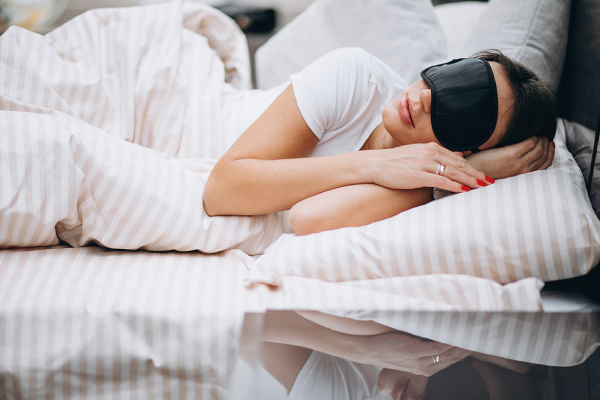Introduction
In the hustle and bustle of modern life, sleep is often sacrificed, with individuals not realizing the profound impact it has on their health. From physical rejuvenation to cognitive function, the importance of quality sleep cannot be overstated.
The Link Between Sleep and Health
Scientifically, sleep is when our body undergoes repair and regeneration. It’s not merely a state of rest; it’s a crucial component in maintaining a robust immune system, supporting mental health, and optimizing cognitive performance.
Factors Affecting Sleep Quality
External and internal factors significantly influence the quality of our sleep. Environmental factors like noise and light, coupled with lifestyle choices and stress levels, can either enhance or hinder our sleep experience.
Tips for Improving Sleep Quality
Creating a conducive sleep environment involves more than just a comfortable mattress. Establishing a consistent sleep schedule, adopting a calming bedtime routine, and steering clear of stimulants before bedtime are pivotal for a good night’s sleep.
The Role of Nutrition in Quality Sleep
Our diet has a direct impact on sleep patterns. Foods rich in certain nutrients, like magnesium and tryptophan, can promote better sleep, while heavy or spicy meals before bedtime can have adverse effects.
Physical Activity and Sleep
Regular physical activity is not only beneficial for our physical health but also for improving sleep quality. Engaging in suitable exercises can contribute to a more restful night.
Sleep Hygiene Practices
The concept of sleep hygiene involves practices and habits that promote quality sleep. From choosing the right mattress and pillows to maintaining a cool, dark bedroom, sleep hygiene plays a pivotal role in sleep quality.
Common Sleep Disorders
Insomnia, sleep apnea, and restless legs syndrome are common sleep disorders that can significantly impact daily life. Understanding these disorders is crucial for seeking appropriate help.
Seeking Professional Help
While adopting healthy sleep habits is essential, persistent sleep issues may require professional intervention. Consulting healthcare professionals and undergoing sleep studies can provide valuable insights into underlying sleep problems.
Lifestyle Adjustments for Better Sleep
Managing stress and finding a balance between work and personal life are essential for promoting healthy sleep. Simple lifestyle adjustments can have a profound impact on sleep quality.
Technology and Sleep
In today’s digital age, the use of screens before bedtime can disrupt sleep patterns. Implementing technology-free zones before sleep can contribute to better sleep hygiene.
Promoting Healthy Sleep in Children
Instilling good sleep habits in children is crucial for their growth and development. From establishing consistent bedtime routines to creating a calming sleep environment, parents play a vital role in promoting healthy sleep in their kids.
How to Avoid Sleep Problems
Prevention is key when it comes to sleep problems. Incorporating healthy sleep habits into your daily routine can significantly reduce the risk of developing common sleep issues.
Recap of Key Points
Quality sleep is a cornerstone of good health. From environmental factors to lifestyle choices, every aspect of our daily routine can impact sleep quality. By making informed decisions and prioritizing sleep, individuals can reap the numerous benefits of a well-rested life.
Conclusion
In conclusion, the significance of sleep for overall health cannot be overstated. By understanding the factors that influence sleep quality and adopting healthy sleep habits, individuals can pave the way for a healthier, more energized life.
Frequently Asked Questions
- Q: How many hours of sleep should I aim for each night?
- A: The recommended amount of sleep varies by age, but most adults need 7-9 hours for optimal health.
- Q: Can technology really impact sleep quality?
- A: Yes, exposure to screens before bedtime can disrupt the body’s natural sleep-wake cycle.
- Q: Are there natural remedies for insomnia?
- A: Establishing a consistent sleep routine, practicing relaxation techniques, and avoiding stimulants can help with insomnia.
- Q: Is it normal for children to snore?
- A: Occasional snoring in children is usually normal, but persistent or loud snoring may warrant a doctor’s attention.
- Q: How can I create a relaxing bedtime routine?
- A: Include calming activities like reading or gentle stretching, and avoid stimulating activities such as watching intense TV shows or using electronic devices.
Source: https://www.cnn.com/2022/12/25/health/workout-mental-health-google-searches-wellness/index.html






